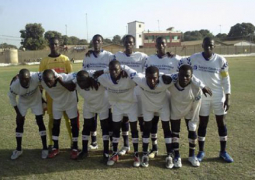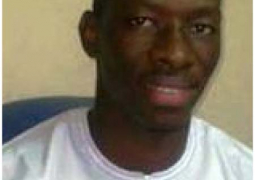
The personality of Muhammad, it is most difficult to get into the whole truth of it. Only a glimpse of it I can catch. What a dramatic succession of picturesque scenes! There is Muhammad, the Prophet. There is Muhammad, the General; Muhammad the King; the Warrior; Muhammad the Businessman; Muhammad the Preacher; Muhammad the Philosopher; Muhammad the Statesman; Muhammad the Orator; Muhammad the Reformer; Muhammad the Refuge of Orphans; Muhammad the Protector of Slaves; Muhammad the Emancipator of Women; Muhammad the Judge; Muhammad the Saint. And in all these magnificent roles, in all these departments of human activity, he is like a hero. Orphanhood is the extreme of helplessness, and his life upon this began with it. Kingship is the height of material power and his life ended with it. From an orphan boy to a persecuted refugee, then to an overlord- spiritual as well as temporal – of a whole nation and arbiter of its destines, with all its trials and temptations, with all its vicissitudes and changes, its lights and shade, its ups and downs, its terror and splendor, he has stood the fire of the world and came out unscathed to serve as a model in every phase of life. His achievements are not limited to one aspect of life but cover the whole field of human conditions
MUHAMMAD THE GREATEST
If, for instance, greatness consists in the purification of a nation steeped in barbarism and immersed in absolute moral darkness, that dynamic personality who has transformed refined and uplifted an entire nation, sunk as low as the Arabs were, and made them the torch-bearers of civilizations and learning, he has every claim to that greatness. If greatness lies in unifying the discordant elements of society by the ties of brotherhood and charity, the Prophet of the desert has got every title to this distinction. If greatness consists in reforming those wrapped in degrading superstitions and pernicious practices of every kind, the Prophet of Islam has wiped out superstitions and irrational fear from the hearts of millions. If it lies in displaying high morals Muhammad has been admitted by friends and foes as Al-Amin and As-Sadiq, the trustworthy and truthful. If a conqueror is a great man, here is a person who rose from a helpless orphan and a humble creature to be the ruler of Arabia, the equal of Khosroes and Caesars, one who founded a great empire that has survived all these 14 centuries. If the devotion that a leader commands is the criterion of greatness, the Prophet’s name even today exerts a magic charm over millions of souls, spread all over the world.
THE UNLETTERED PROPHET
He had not studied philosophy in the schools of Athens or Rome, Persia, India or China, yet he could proclaim the highest truths of eternal value to mankind. Unlettered himself, he could yet speak with an eloquence and fervor which moved men to tears of ecstasy. Born an orphan and blessed with no worldly goods, he was loved by all. He had studied at no military academy; yet he could organize his forces against tremendous odds and gained victories through the moral forces which he marshaled. Gifted men with a genius for preaching are rare. Descartes included the perfect preacher among the rarest kind in the world. Hitler in his ‘Mein Kampf’ has expressed a similar view. He says: “A great theorist is seldom a great leader. An agitator is far more likely to possess these qualities. He will always be a better leader. For leadership means the ability to move masses of men. The talent to produce ideas has nothing in common with the capacity for leadership.” But he says: “The union of the theorist, organizer, and leader in one man is the rarest phenomenon on this earth; therein consists greatness.”
In the person of the Prophet of Islam the world has seen this rarest phenomenon on the earth, walking in flesh and blood. “A poor, hard-toiling, ill-provided man; careless of what vulgar men toil for. Not a bad man, I should say; something better in him than HUNGER of any sort- or these wild Arab men, fighting and jostling three-and –twenty years at his hand, in close contact with him always, would not have reverenced him so! “They were wild men, bursting ever and amon into quarrel, into all kinds of fierce sincerity; without right worth and manhood, no man could have commanded them. They called him Prophet, you say? Why, he stood there face to face with them; bare, not enshrined in any mystery; visibly clouting his own cloat, cobbling his own shoes; fighting; counseling, ordering in the midst of them: they must have seen what kind of a man he WAS, let him be CALLED what you like! No Emperor with his tiaras was obeyed as this man in a cloak of his own clouting. During three-and-twenty years of rough actual trial, I find something of a veritable Hero necessary for that, of itself.” (Carlyle in “Heroes and Hero Worship”)
And more wonderful still is what the Reverend Bosworth Smith remarks: “Head of the state as well as the Church, he was Caesar and Pope in one; but he was Pope without the Pope’s pretensions and Caesar without the legions of Caesar without a standing army, without a bodyguard, without a police force, without a fixed revenue. If ever a man had the right to say that he ruled by a right divine, it was Muhammad, for he had all the powers without their supports. He cared not for the dressings of power. The simplicity of his private life was in keeping with his public life.”
MUHAMMAD- UNTAINTED AND PURE
After the fall of Makkah, more than one million square miles of land lay at his feet. Lord of Arabia, he mended his own shoes and coarse woolen garments, milked the goats, swept the hearth, kindled the fire and attended to other menial offices of the family. The entire town of Madinah, where he lived grew wealthy in the later days of his life. Everywhere there was gold and silver in plenty, and yet in those days of prosperity many weeks would elapse without a fire being kindled in the hearth of the King of Arabia, his food being dates and water. His family would go hungry many nights successively because they could not get anything to eat in the evening. He slept on no soft bed on a palm mat after a long busy day, to spend most of his night in prayer, often pleading with tears before his Creator to grant him strength to discharge his duties. As the reports go, his voice would get choked due to weeping and it would appear as if a cooking pot was on fire and boiling had commenced. On the day of his death his only assets were a few coins, a part of which went to satisfy a debt and the rest was given to a needy person who came to his house for charity. The cloths in which he breathed his last had many patches. The house from where light had spread to the world was in darkness because there was no oil in the lamp.
CONSISTENT UNTO DEATH
Circumstances changed, but the Prophet of God did not. In victory or in defeat, in power or in adversity, in affluence or in indigence, he was the same man, disclosed the same character. Like all the ways and laws of God, Prophets of God are unchangeable.To be continued



